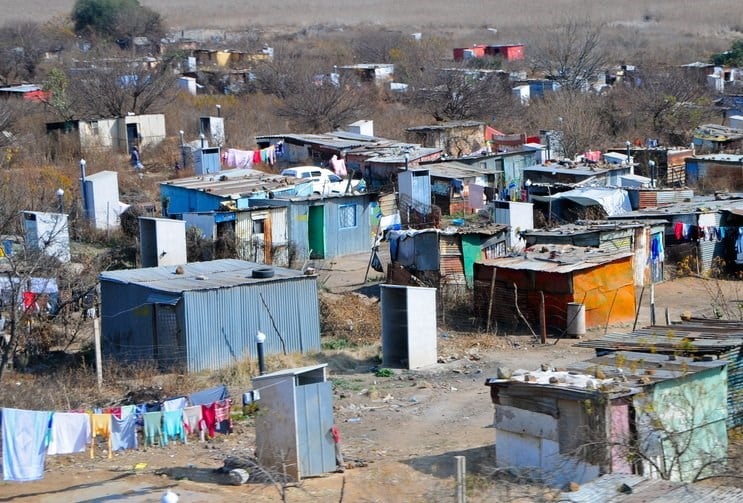FP: The West lost Africa through 'Cold War-esque' policies, liberalism
With the current energy crisis, the West sees an increasing need for Africa's resources... only to realize that they're losing influence.
-

The African continent has suffered crippling debt and poverty through imported neoliberal policies
The West lost Africa through "Cold War-esque" policies on the continent, through forcing the liberal democracy-style imposition of civilizational standards, in addition to US policies that have used Africa as a "backyard" to counter Russian and Chinese presence with no consideration for the welfare and interest of the African peoples, a Foreign Policy article, "How the West lost Africa", revealed on Wednesday.
Most recently, a headline that appeared in the Nigerian Premium Times read, "Proposed US law seeks to punish African countries for 'aligning' with Russia," warning that the continent could be caught in the crossfires in the war the US and its allies are waging against Moscow.
The story addressed a Congress debate in April over a bill Washington would use to "counter the malign influence and activities" of Russia in Africa. The article draws on journalists' conclusions that US foreign policy, to a large extent, is fueled by geopolitical concerns and rivalry in Africa, mainly against Russia and China. The prosperity of Africans, on the other hand, falls irrelevant.
Read more: West pressuring African countries to condemn Russia
The Act, sponsored by a Democrat representative, would allow Congress to evaluate how much influence Russia has on the African continent - the bill passed the House of Representatives on April 27, with the overwhelming support of 415 members and 9 standing against it. The bill is just one of many others, and it has sparked fears of an escalation of a "new Cold War" among African observers.
The bill was brought up by US Congress Democrat Representative of New York, Gregory Meeks - but even before the bill emerged, some observers have raised expectations that Washington would eye African countries that have not taken a pro-NATO stance and somehow punish them for it. Nontobeko Hlela, a writer in the Elephant, a Kenya-based newspaper, said Washington "expects other countries to fall in line," despite being "systematically excluded from any decision-making."
Read more: British army admits to using white phosphorus in Kenya
In parallel to Meeks' bill is the Strategic Competition Act, which also vibes Cold War. Not against Russia, but China.
That comes in addition to the US Innovation and Competition Act, 2,900-page legislation that also aims to undermine China. Foreign-policy researchers Odilile Ayodele and Mikatekiso Kubayi wrote that the hyper-focus on China and Russia in the bill "speaks more about power … than a genuine partnership with Africa."
The bill requires the regular identification of African governments and officials "that have facilitated payments and other prohibited activities that benefit US-sanctioned individuals and entities tied to Russia." This could have punishing implications, such as sanctions against African nations choosing to buy Russian energy.
An article written for Carnegie by Zainab Usman and Katie Auth says that a growing number of people from a population of young and cynical thinkers perceive US policies as being focused on Russia and China and that Africans were just pawns in this "so-called great-power game."
Decreasing trade is also another issue of why the West has strayed away from African acceptance. Trade between the US and Africa in 2008 was $142 billion, and it has decreased to $64 billion as of 2021. While holding that reality, Washington nonetheless still fails to realize that the African continent actually enjoys infrastructural benefits, such as the Chinese Belt and Road Initiative (BRI), which has connected trade routes and continents together, bolstering trade and mutual benefit, such as in Senegal.
Furthermore, the way Africans are addressed also has a role in this issue. When being addressed, African feelings have no room or consideration in the conscience of the neocolonial power. Recently, the US ambassador to the UN, Linda Thomas-Greenfield, said, "we have to do additional work to help these countries to understand the impact of Russia's war of aggression on Ukraine." This holds an implication that African leaders need to be lectured and educated about who's who and what's what. The rhetoric is derogatory and implies a strong power dynamic.
Liberal democracy styles, furthermore, have also failed the continent, according to Ghanaian historian Samuel Adu-Gyamfi. Liberalism entails liberal capitalism, which has sunken the continent into severe poverty and debt. In Adu-Gyamfi's perception, the IMF and the World Bank have led to dire developmental setbacks in African countries. Many imported policies have hurt development, such as "lockdowns, travel bans and vaccine mandates—pushed on Africa by Western-dominated institutions," as written in NewsAfrica.
The United States is not the only entity that has weaning influence in Africa through its arrogant, self-serving policies. Just yesterday, German chancellor Olaf Scholz kicked off his 3-day trip to Senegal for energy projects as his country sits in nervousness, losing energy sources post-Ukraine war. Scholz has also invited South Africa in addition to Senegal to the coming G7 summit.
France, however, has been having it tougher - in Mali, Algeria, and beyond. Recently, Mali has taken the decision to expel French military presence from its land, particularly after finding mass graves near a French military post. After 9 years of French military presence in Mali, which made the country suffer in the name of "fighting terrorism," Paris received major backlash in addition to frustration and accusations of drone attacks and the murder of civilians.
Read more: French failure in Mali, French elections & Russian affinity
All in all, the African continent is fed up with the West's projection of alliances and rivalry on them, taking the carrot and the stick foreign policy approach to sovereign decision-making. For decades, in Washington's foreign policy toward Africa, as an FP columnist, Howard French wrote, "America’s concern with containing the spread of Chinese or Soviet influence overrode considerations of governance and democracy."

 6 Min Read
6 Min Read








